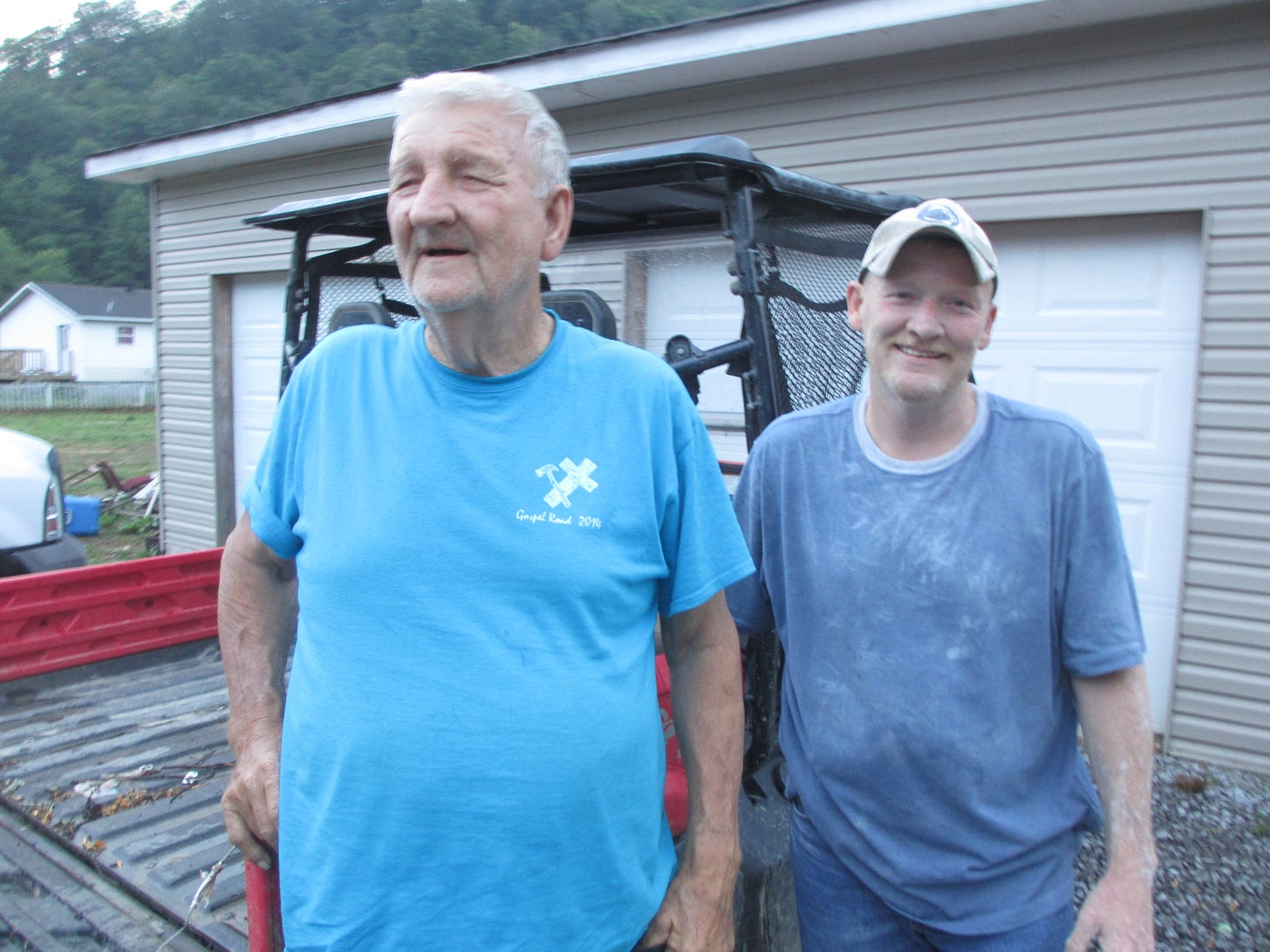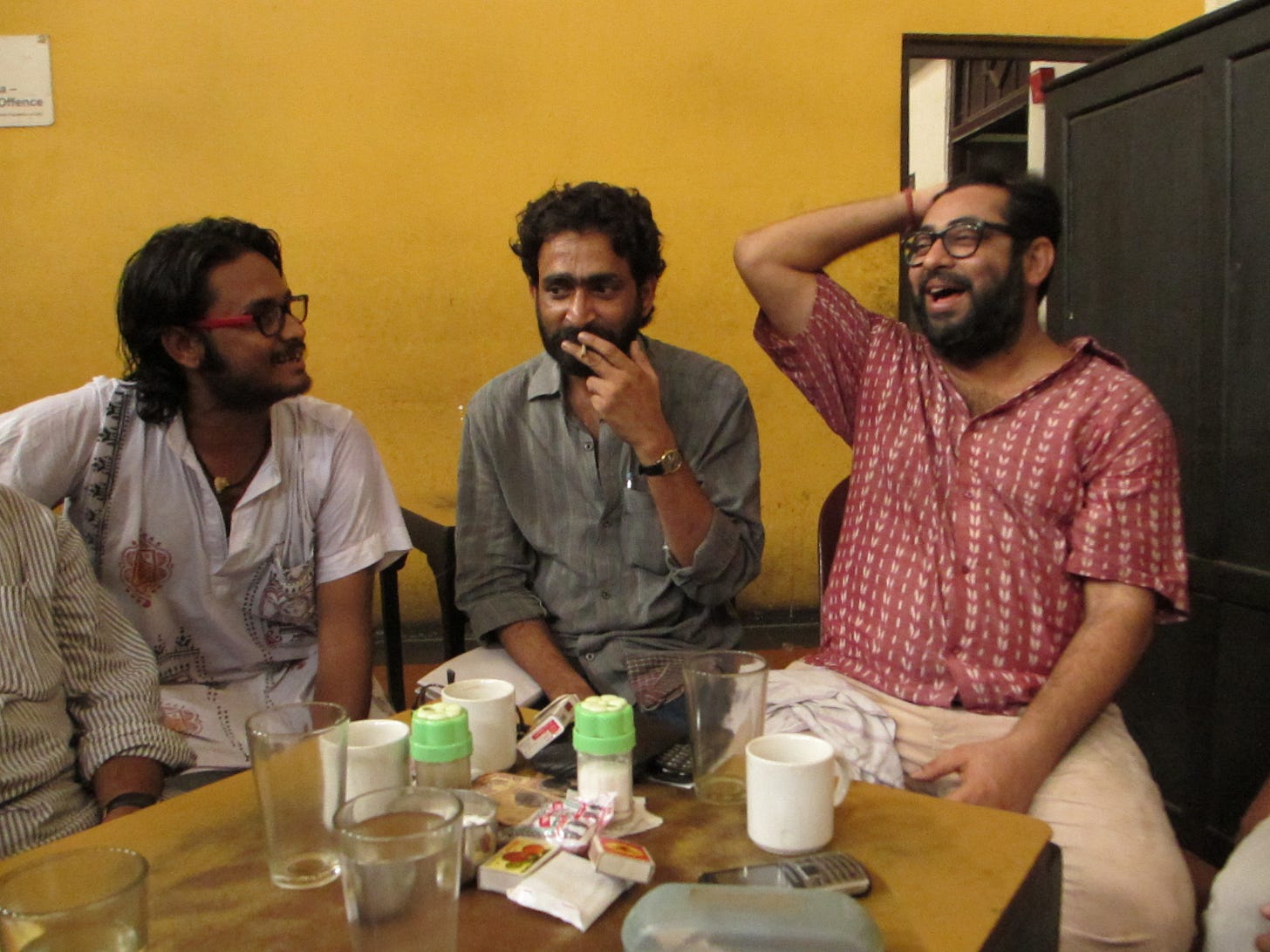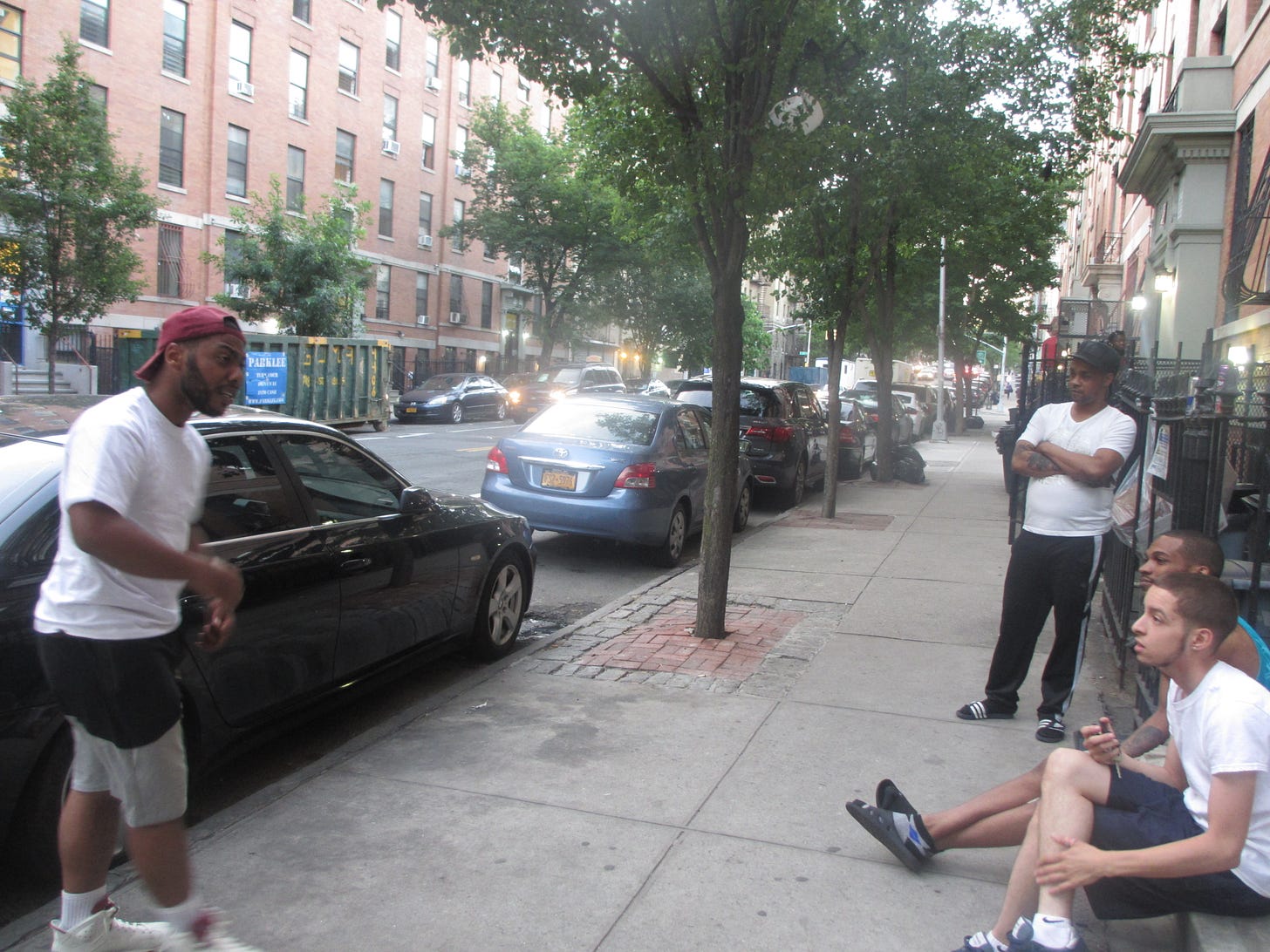Why I Do What I Do
Empathy and Listening will be (Understandably) Questioned This Year. A Piece from the Before Times that Suggests it's Part of the Fight.
***First a THANK YOU to everyone who has supported this Substack venture this past year. I am so grateful for your interest and support. There’s a ton of noise in our culture; it’s really hard to break through. I’m grateful to have a small merry band of readers. I wish I could write more, but for now, I am prioritizing quality over quantity. I’m proud to have written about Reconciliation in Colombia, a Prepper summit in Florida, the Oakland A’s Baseball Experience, Mentally Time Traveling Back to the ‘90s in a Ghost Mall with my Son and Parisian Nephew, Helping Refugee Women Tell their Stories in Canada, among many other topics.
So for the one year (ish) anniversary of writing these, I thought I’d post something I wrote back in 2019, in the before times. I wrote it when I was on the way to perform at the National Storytelling Center. It’s something I often read at the beginning of classes I teach. It’s a little bit different. A meditation on process rather than a story. But it’s at the heart of my mission as an artist and of this writing space. If you’ve enjoyed reading these, please send them onto whoever you think might enjoy. And if you have things you’d like me to write more about, let me know. Thank you! ****
Few people would support the idea that the place we are born into this world will forever completely define us. That our given circumstances of race, class, gender, sexuality, socio-economic opportunity, geographic location (city, town, state, neighborhood or rural area within that) are all that we are or forever will be. We are those things. But we also become who we are by the experiences we have. When we live in different places, when we hang out in different sub-cultures, when we have intimate, probing conversations with people from different walks of life, when we laugh together, when we spend time on people’s stoops and in their houses, when we eat food together, when we meet their friends and family, that experience broadens us. It makes us more than just the given circumstances we were born into.
We don’t ever completely leave behind our born given circumstances. We can’t control how we are seen and perceived by others, the status society places on these different characteristics. But if someone were to judge me solely based on how I was born into this world, it would feel profoundly lacking.
I have spent languid nights jisting and hearing oil war stories with Abacha and Labuya and Charlie Bushy on the shores of Escravos, Nigeria, across from the largest oil flow station in West Africa. I have laughed with young men in the Webster projects in the South Bronx about if it’s just European white folks or all white folks who dress drippy and spend lots of money on clothes. I have sipped homemade moonshine in remote hollers of Kentucky with ex-coal miners who were told to “get a scrip and come back to work tomorrow” one too may times. I have shared coffee and celestial connections with brilliant intellectuals on suffocatingly hot days in Kolkatta, India—becoming a part of their Adda group, their daily intellectual hangout.
It goes on and on. The point being that these experiences have marked me profoundly. They have made me a different person than I used to be. I think differently, I see differently, I listen differently, I reason differently, I feel emotions differently.
Of course my friends would recognize me. But how to account for all these experiences? How are they tallied in this thing we call our identity? To me, they are front and center. But they have marked me in mostly internal ways. I dress slightly differently than I used to. Otherwise, there’s little on the outside to show where I’ve been. And yet these experiences are—along with my family—my pride and joy, the thing most essential to who I am.
I have had many profound, exhilarating, hilarious, joyful, intense connections with people. And I want to share this with people. It’s the best thing in my life. It’s who I am. And doing my shows I get to do that. And audiences get to experience what I experienced to a certain degree. And the way I do that is by channeling the people, or versions of the people, who gave me those experiences. I pass along those moments. I recreate them for my audiences so that they can receive the joy and wisdom and connection themselves.
And in so doing, I pay homage to the people who shared their stories with me. When I got down with them, it feels like we are able to transcend the things that mark and separate us. One is always aware of the differences, but there’s invariably a moment or several moments, or hours when the barriers between our experiences fall away, and we are sharing a moment of cross-cultural connection that is purely and fundamentally human. We are both aware of our divergent circumstances and understand them to be slight in the totality of the universe. It’s like we rise up and look over our fences and have this moment when we are like oh hey, I see you, I get you, I see you as a complex human being, and I appreciate all your complexities. We are just hanging out, and completely comfortable.
My work is about encouraging a way of being in the world. Which is more open, and less fearful of each other, especially of people we don’t know. More full of wonder and curiosity about the variety and intricacies of the human experience.
****2024 Update: People often ask how do you do this work without being exploitative, or overly extractive? I respond with a question to a room: How many of you feel understood by the world? Nobody raises their hands. Every time. Cause we all go through the world feeling largely misunderstood. I tell my students that when you do this work, you are offering a chance for people to be seen and heard on a deep level, at length, as they want to be seen and heard today. Even our close friends and relatives hold baggage from our past in how they listen to and understand us. When listening to someone’s deep story, one is offering a chance for someone to be understaood exactly as they want to be understood at that moment in time. You are asking them for their time. But you are also offering a gift of being understood and seen and heard for that time.
There are lots of valid questions about the limits of empathy. I struggle with it often. Especially at a time when our democracy feels tenous. (My new show is all about this). And fighting to preserve our democratic institutions, respect for a free press and science, basic decency etc. feels paramount. But as Sammy in my new show TAKES ALL KINDS says (and he has a story that earns him the right to say this like no other). “A lot of folks mistake listening for conceding. Listening is not conceding. When you stop listening, that’s conceding.” Listening is not a panacea, it’s not an end place, but it’s definitely a part of the fight.





Acts 16:31, 1 Corinthians 15:1-8, 1 Peter 1:17-21, Revelation 22:18-19
TEST